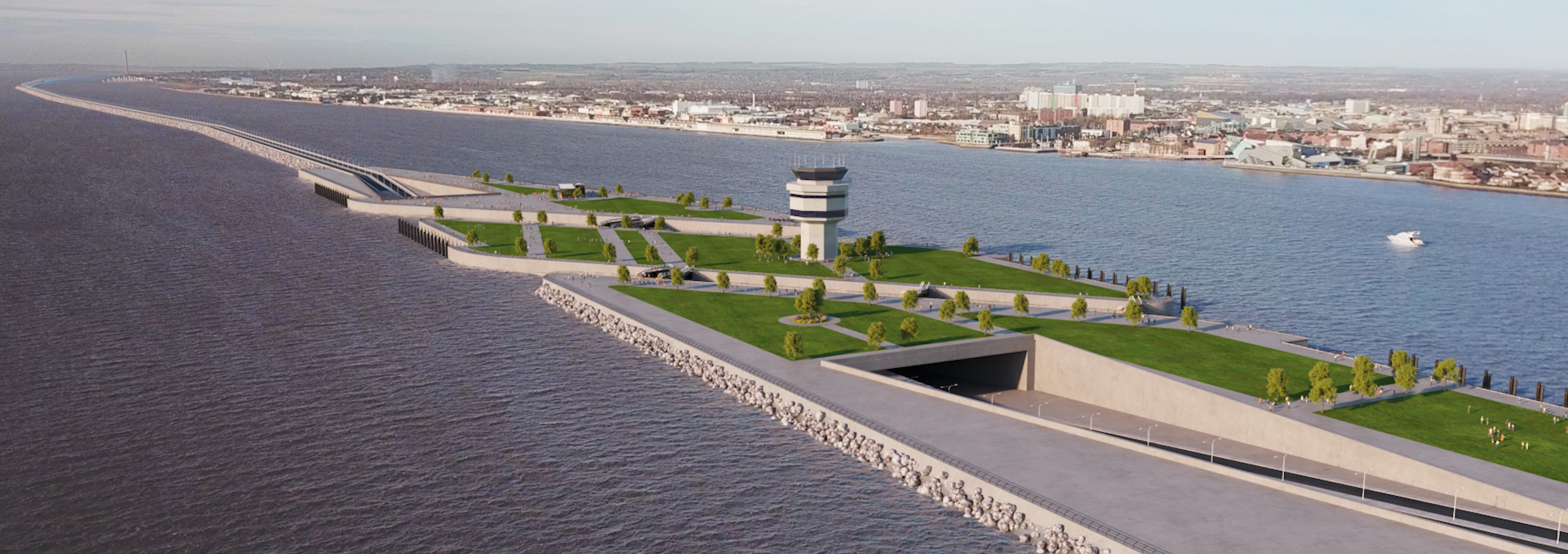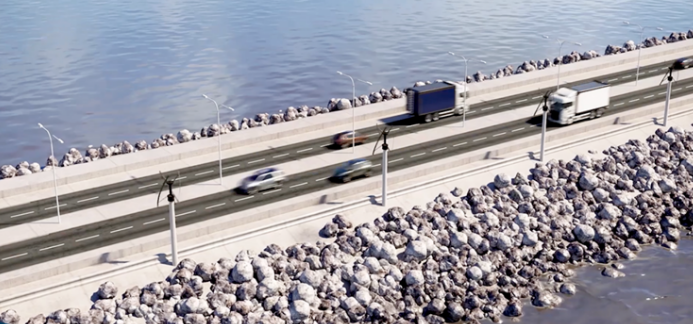
The English city of Hull in Yorkshire has put on hold its proposed multi-billion dollar LagoonHull development that includes a road under the Humber River.
The plan is to transform the centre of Kingston upon Hull and river frontage from the 2.2km-long, single-span suspension Humber Bridge – 10km from Hull - to Victoria Dock and along to the town of Beverley. It would provide a maritime living environment and regenerate the Western Docks.
However, a note on the official website of LagoonHull says, “the Lagoon Hull project has been paused until further notice and support we need is forthcoming”.
The project has been four years in the planning, since 2019. “Lagoon Hull has provided an exciting vision for the future of Hull and the wider Yorkshire region…. The transformative scheme could be the ultimate levelling-up project – but the private sector has taken it as far as it can, and it now needs ambition and official commitment from local councils, government agencies and central government.”
Under the LagoonHull project, a free-flowing route – relieving the crowded A63 - would run for 9.6km along a causeway with a section along the Humber River. The average river depth of the area is less than 7m. The road would be for traffic from the docks and also the UK’s east coast and Europe to connect with the M62 corridor - the core element of the road plan for the development.
The causeway section will also be part of a new flood defence system for the city centre an create a 5km² lagoon. It is estimated that the four-lane causeway road – basically an A63 bypass – could take up to 46% of traffic on the existing A63 that winds its way along the bank of the Humber through the city and docks.
Kingston upon Hull, usually abbreviated to Hull, is a sea and river port city of around 260,000 people in northeast England. It sits upon the River Hull at its confluence with the Humber Estuary and is about 40km inland from the North Sea. As such, it is home to many deep-sea container terminals and important vehicle ferry services to and from Rotterdam.
By the end of 2021, the agency noted that the project’s core development and construction costs are estimated to be between US$1.3 billion and $2.7 billion. This would be shared within a public-private partnership with around a third of the cost being put up by the private sector. Part of the public sector-funded elements would be met by repurposing existing government spending commitments.











